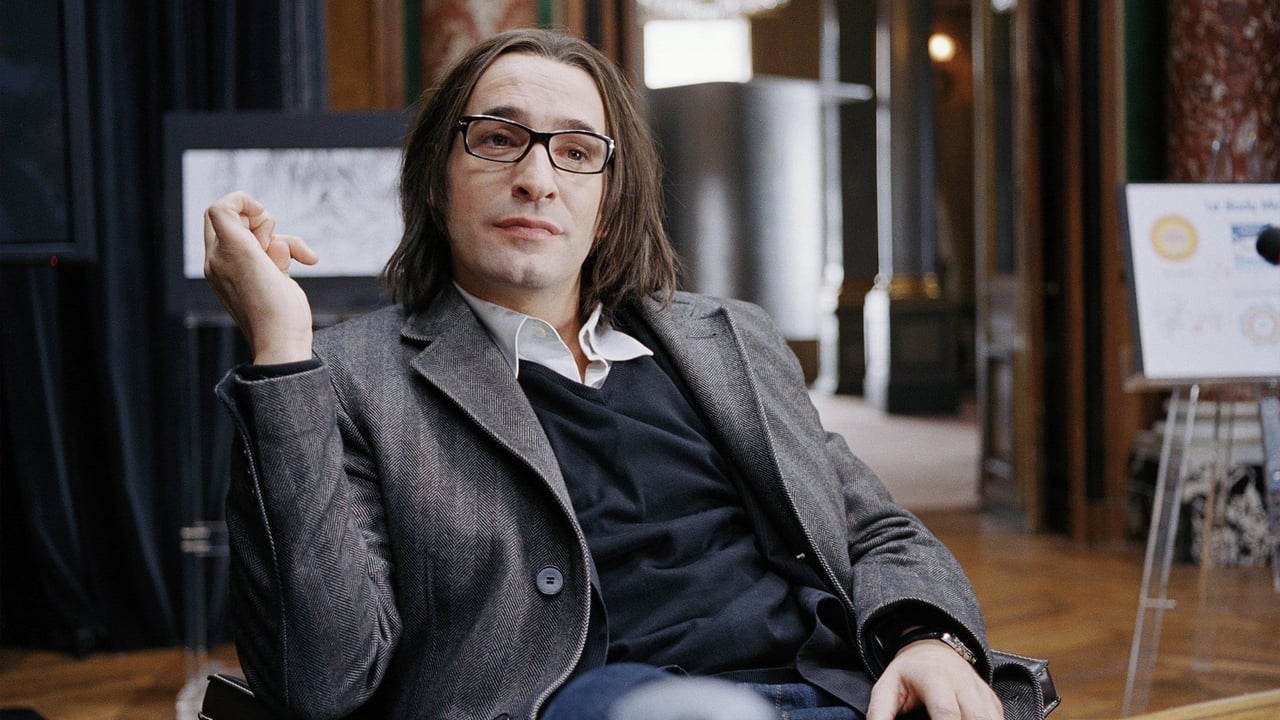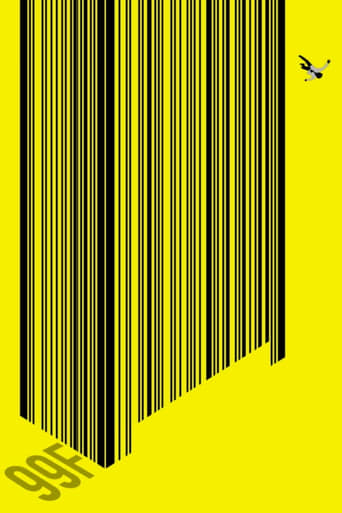

If you can imagine what an episode of "Mad Men" might've been like if they let Quentin Tarantino direct an episode, that's what you get with "99 Francs," an extremely ambitious and darkly funny assault on modern capitalist consumer culture and our advertising-obsessed age. As a guy who's worked on and off in advertising for years, I almost shut off the film in the first half-hour, because it seemed like a bunch of things I've seen before -- vain, handsome, narcissistic drug and sex obsessed self-hating ad agency Creative Director's career ascends as his personal life falls apart --- Been there, seen that, over and over.But I stuck with it and as the movie goes on, it becomes increasingly ambitious and, finally, profound. The last half hour or so is INTENSE, and I recommend sticking through the credits. The point the film tries to make connects, if maybe a bit too obviously at the end, but it's still pretty powerful. Not surprised this subversive, well-made film didn't get a US theatrical release. Hollywood would never dare make a picture like this.
... View MoreIt is some kind of malicious satire about adv. «99 francs» - at such price sold this book before introduction of currency of euro). The story is kept on behalf of the advertiser working in the Manon company (a prototype of the real company "Danon"). The world of adv, fashion and public relations is shown from within - and it isn't so ideal, as it seems to us. And it is not so ideal rather. Not so everything is beautiful, colourful and pleasant – as we, audience, consumers we see in commercials. In total, it is forged, skillfully arranged – only for the sake of profit, for the sake of money and profit, for the sake of that – that we everything as a result BOUGHT it! Also that we do?! We buy! Adv – the trade engine! Create beautiful adv. – and half of affairs it is made! So Beigbeder also describes emergence of the Madam of Advertising.But, unfortunately, any goods: whether it be sausage, yogurt, shoes, toys which is attractively shown in adv – can break life ((( In gesture adv everything has the expiration date. Even at the person. Favourite quotes from the book: «People don't know, that want, until to them it won't offer». «The states will be replaced soon by firms. And we will cease to be citizens of this or that country, we will live in trademarks – to Maykrosofty or Makdonaldy – and to be called Kelvinklyaynityanami or Ivsenlorantsami» «Everything passes and everything is on sale. The person - the same goods, as well as all the rest, and at each of us is the expiration date.» «Everything is bought and everything is on sale: love, art, mother Earth, you, I; especially I».
... View MoreI pretty much hated the movie right from the start. You just know quite fast when you start watching a film, any film, whether the film rings true or whether it's full of sh*t. 99 francs was the latter.The film was full of clichés and bad jokes. Probably some of the "funny" stuff was France-centric and don't mean that much to others, but that can't really explain the staggering dumbness I had to witness. I felt like I was treated like a 10 year old who has never seen a film or read a book, or really knows nothing about the realities of the world. Actually it felt like the makers were 15 year old teens who felt like they wanted to set the record straight of what the advertising world reaaalllyyy is like. But the problem is that there was absolutely nothing new here. We've seen this stuff million times before.Like other reviewers have pointed out here this was apparently a successful book transformed to film. That explains a lot, because usually it's really hard to achieve the atmosphere successfully. And this film tried really just too much. In a way I appreciate the franticness of the film, and of course I do appreciate the obviously high production values, but to me it was all just a waste. The knowledge of those can't erase the disappointing feeling the film gave me, and that's why I only give it 3 stars.
... View MoreJan Kounen's adaptation of Frédéric Beigbeder's bestseller has, to put it in wiki lingo, multiple issues. First, it commits the deadly sin of literature adaptations: excessive off-the-screen narration by the main character Octave, an abusive, drug-addicted advertisement creative. There's a lot of plot development which is never on-screen, and the narrator tries to do exactly what he blames the advertisement business for: lead us astray.That's the second weak point of this film: by following the main character's viewpoint, it invests advertisement with almost god-like power. However, studies in the field (as one's own living experience) do not confirm a definite impact of advertisement on consumer choice. If you are aware of this, and especially if you are a woman, and most especially if you are a homemaker, you may find the constant bickering on the ease of manipulating (female) minds rather off-topic and sexist. To be fair, this irritating aspect is faithful to the novel.But to conclude with the third and major flaw of the film: the stereotypes don't allow for any social statement. If larger-than-life characters keep dishing it out against society and each other, where is the social comment? And if it's a drama, why not focus on the main events - Octave's falling out with his job and lifestyle, and his incapability to admit his feelings to the only woman he's ever loved? Instead, the viewer is being bombarded with F/X and heavy visual leanings on Spike Jonze, the Coen Brothers and Terry Gilliam, leading more or less nowhere.The sad thing is: when there's no talk and no abuse, this is actually excellent stuff. A wordless 'alternative ending' really does what the rest of the film was only gibbering about: deliver an accurate summary on how the wish to make one's life less twisted will ultimately remain a (death) wish for the 'civilized' man. More of such imagery, and this would have been a masterpiece.
... View More